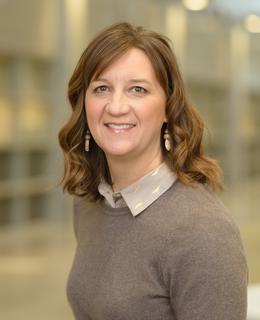

Dr. Laura Sycuro
Positions
Associate Professor
Cumming School of Medicine, Department of Microbiology, Immunology and Infectious Diseases
Program Lead - Genomics and Bioinformatics
International Microbiome Centre
EDI Portfolio Lead
The Calvin, Phoebe and Joan Snyder Institute for Chronic Diseases
Affiliations
Associate Professor
Cumming School of Medicine, Department of Obstetrics and Gynaecology
Associate Professor
Cumming School of Medicine, Department of Biochemistry and Molecular Biology
Full Member
The Calvin, Phoebe and Joan Snyder Institute for Chronic Diseases
Child Health & Wellness Researcher
Alberta Children's Hospital Research Institute
Contact information
Web presence
Phone number
office: 403-220-4453
For media enquiries, contact
Kelly Johnston
Senior Communications Specialist
Please submit your media request here
I'm looking for...
Research partners
Bioinformatics and data science professionals interested in supporting the International Microbiome Centre as staff scientists and data analysts. Please reach out by email.
Study participants
The following studies are actively recruiting research participants:
1) Prediction, Prevention and Interventions for Preterm Birth
Background
Educational Background
B.A. Molecular, Cellular and Developmental Biology (Summa Cum Laude), University of Colorado, 2000
M.Sc. Epidemiology, University of Washington, 2006
Doctor of Philosophy Molecular and Cellular Biology, University of Washington, 2009
Research
Areas of Research
The broad goal of my research program is to harness the microbiome to promote health. My lab is working to advance the precision with which we define the composition of the microbiome and mechanistically link its species and genes to health outcomes. This work is unfolding in three directions:
1) Development and application of emerging technologies that deepen our understanding of how the microbiome influences the host proteome and glycome.
2) Discovery of bacterial functions that alter community dynamics, damage host tissues, and dysregulate the immune system.
3) Elucidation of bacteria-host interactions that drive colonization, reslience, and host development.
Our interdisciplinary approach marries human cohort studies with leading edge ‘omics technologies and multi-dimensional cell culture models to move from observation to mechanistic discovery.
Participation in university strategic initiatives
Courses
| Course number | Course title | Semester |
|---|---|---|
| MDGE 724 | Intro Bioinformatics Resources | |
| MDSC 611 | Medical Microbiology |
Publications
In the News
- The Mysteries of the Maternal Microbiome. European Medical Journal Podcast. (2023)
- Are bacteria that secrete protein degradation enzymes responsible for preterm births?. Research Outreach. (2022)
- A Field Guide to Your Vaginal Microbiome. Best Health. (2023)
Are you the profile owner?
Login to edit.
